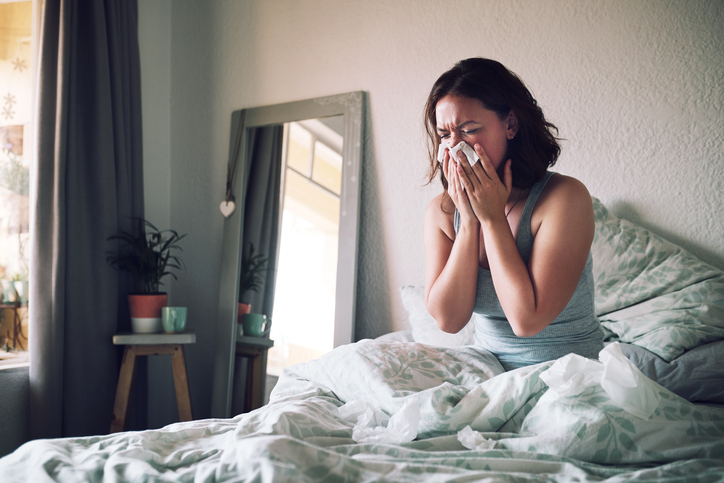Believe it or not, the winter is a time that many people experience allergy-related issues – even those of us who don’t have seasonal allergies. There are a number of reasons for what that is but they all stem from a common source: it’s cold outside! During the winter people typically leave their windows closed, turn up the heat, and try to wait it out until warmer weather arrives. Stagnant air, poorly filtered HVAC units, and a lot of time spent indoors all contribute to poor air quality and allergen outcomes.
Why Are my Allergies Especially Poor During the Winter?
Conversely, throughout the other seasons of the year, it’s common to open windows and get fresh air circulating around the house, which can help move dust and dander around and out of our mouths and noses. During the warmer seasons, it’s also easier to maintain stable indoor humidity, whereas during the winter temperatures and humidity in homes often jump around making it easier for mold to grow and move around. During the non-winter seasons, we also spend a lot more time outdoors in the fresh air, and homes don’t need to rely so heavily on central or space heaters that exacerbate our sinuses and make us more susceptible to uncomfortable allergy-related issues.
What Can I Do About It?
I’m sure you’ve already gleaned some solutions to the problem of winter-related allergies but this article only covers a few of the bigger issues at hand. Here are some things you might consider doing during the cold months to reduce some uncomfortability:
- Open the windows for a few hours a day to let some fresh air in.
- You may want to look into purchasing a humidifier to balance out the potentially dry outdoor air
- Put your clothes away! Close that sit out are magnets for dust, and when you pick the clothes up all of the dust shakes loose
- Keep a vacuuming routine; all of that stagnant indoor air allows dust and allergens to settle on the ground until someone walks by and kicks it up
- Make sure that your HVAC filters are replaced before the winter season rolls around


